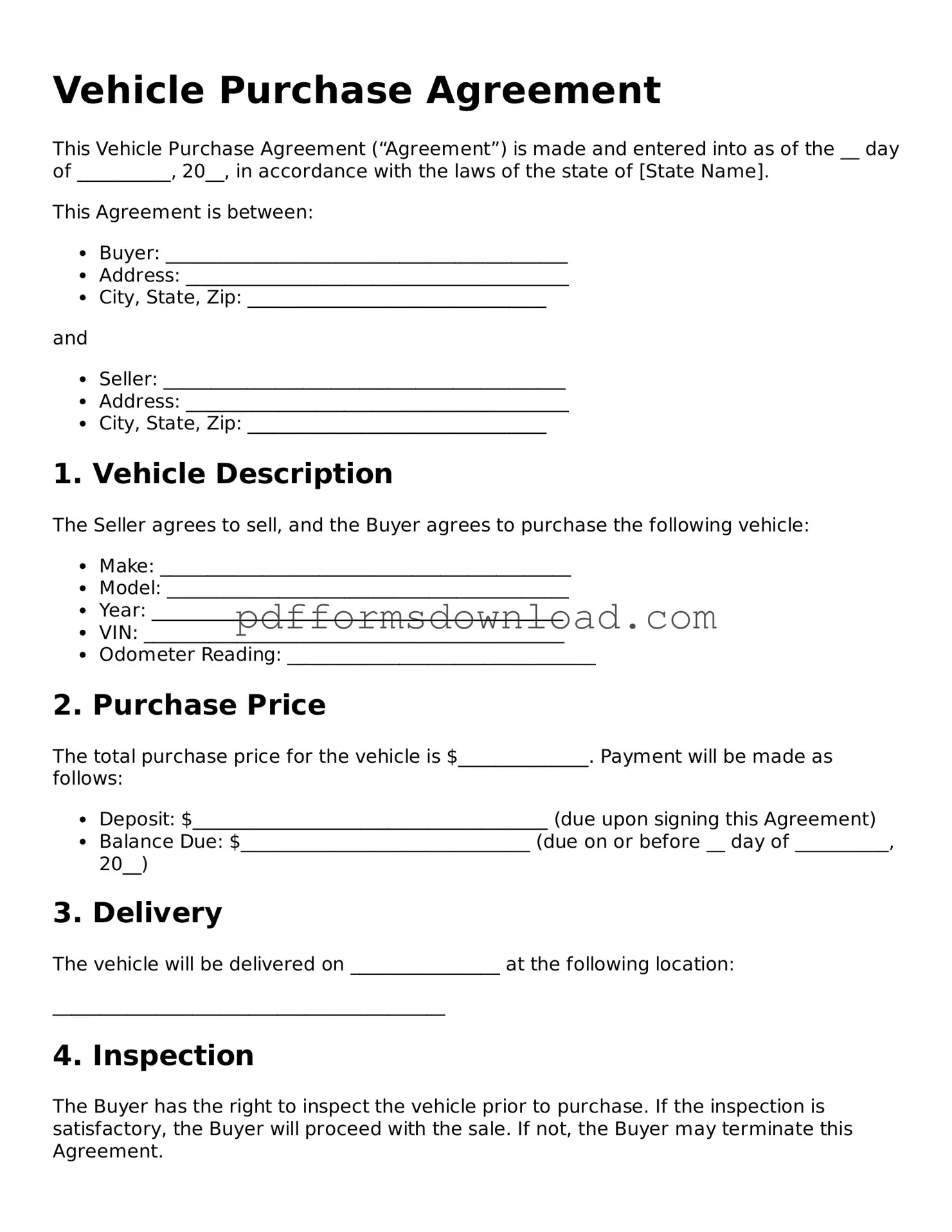Official Vehicle Purchase Agreement Document
The Vehicle Purchase Agreement form is a legal document that outlines the terms and conditions of a vehicle sale between a buyer and a seller. This agreement serves to protect the interests of both parties by detailing the specifics of the transaction, including the vehicle's price, condition, and any warranties. For a smooth purchasing process, consider filling out the form by clicking the button below.
Make This Document Now

Official Vehicle Purchase Agreement Document
Make This Document Now

Make This Document Now
or
Free PDF File
Your form is almost ready
Complete your Vehicle Purchase Agreement online — edit, save, and download easily.